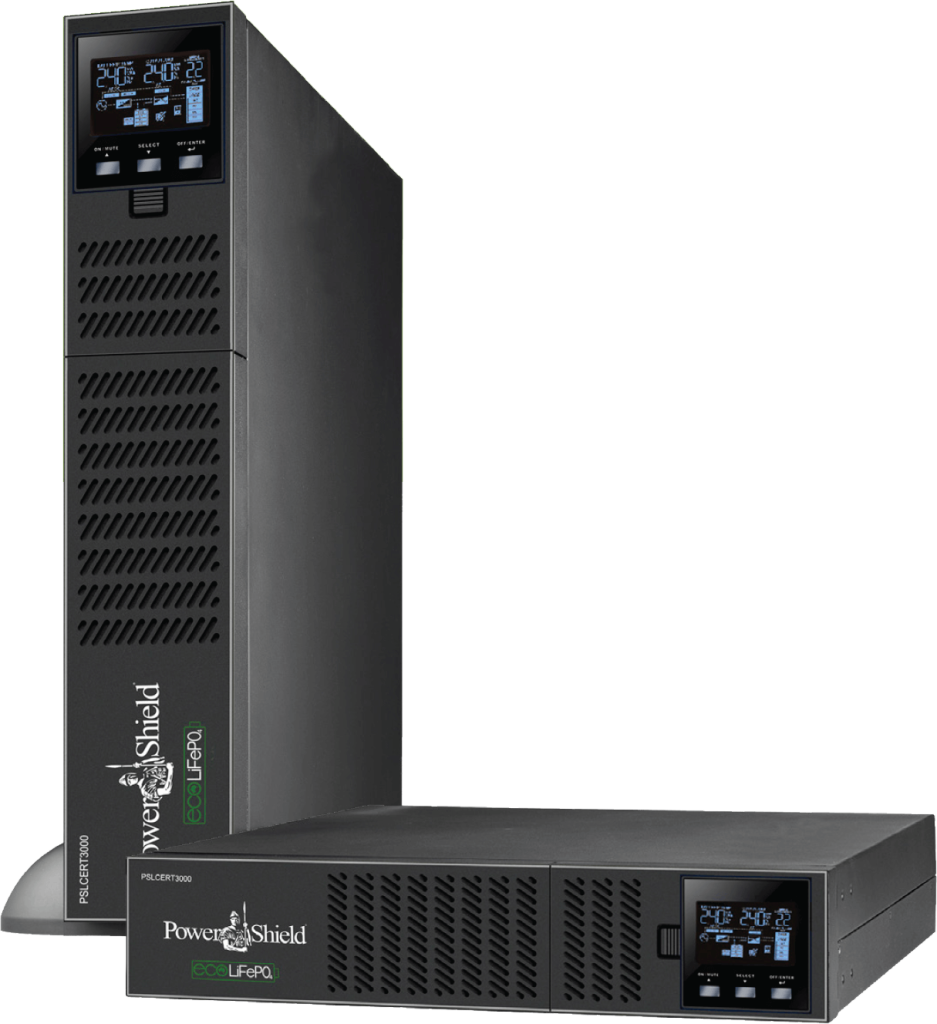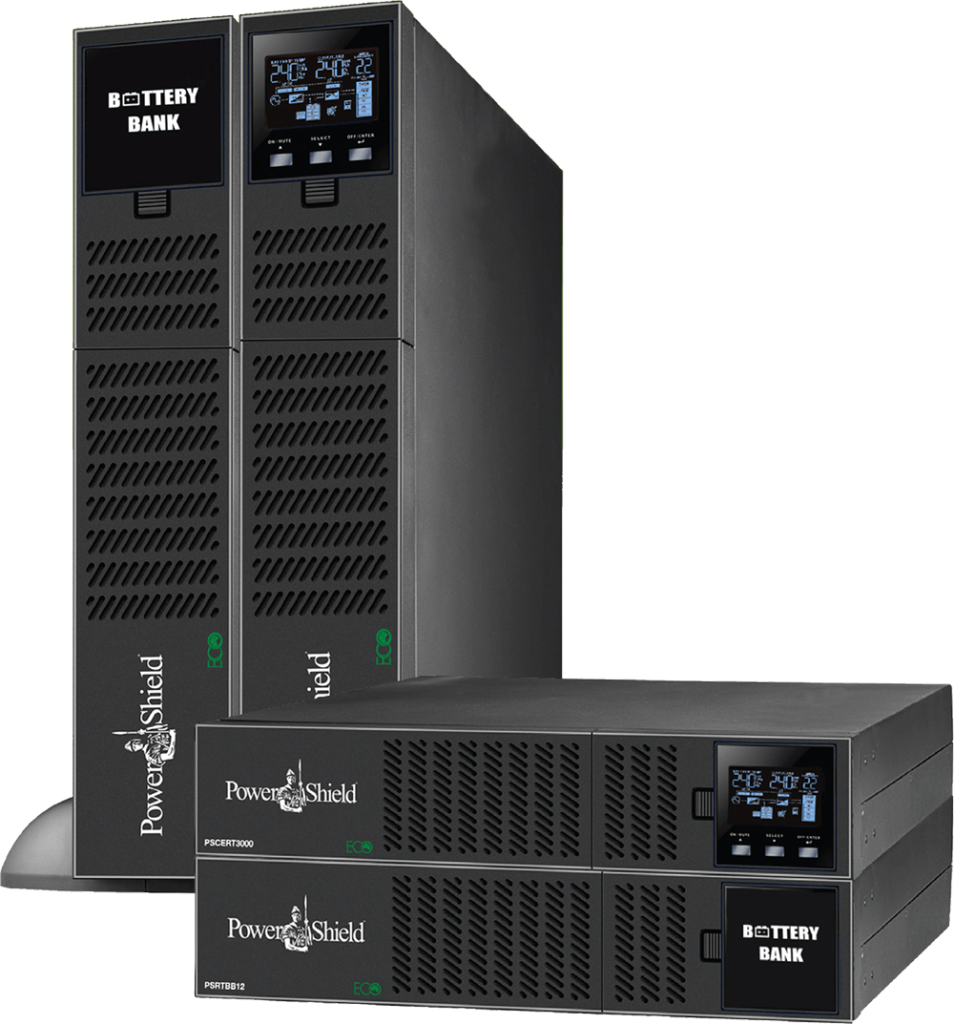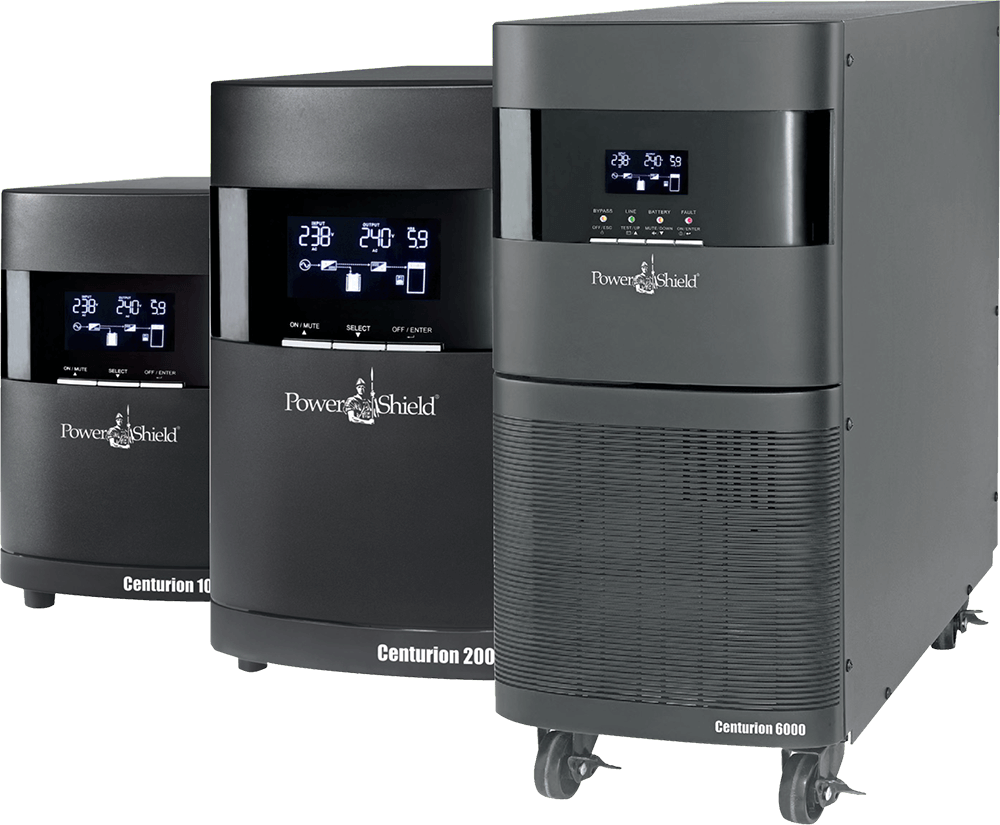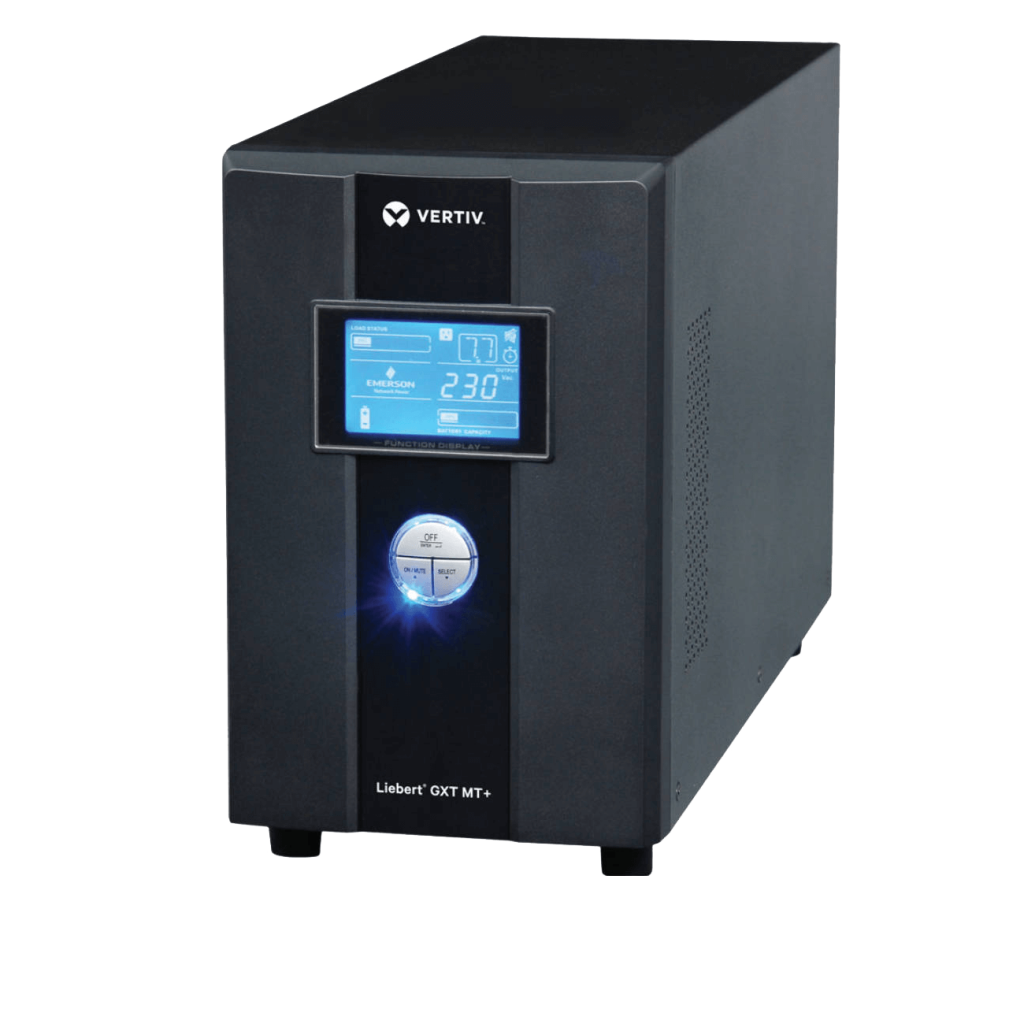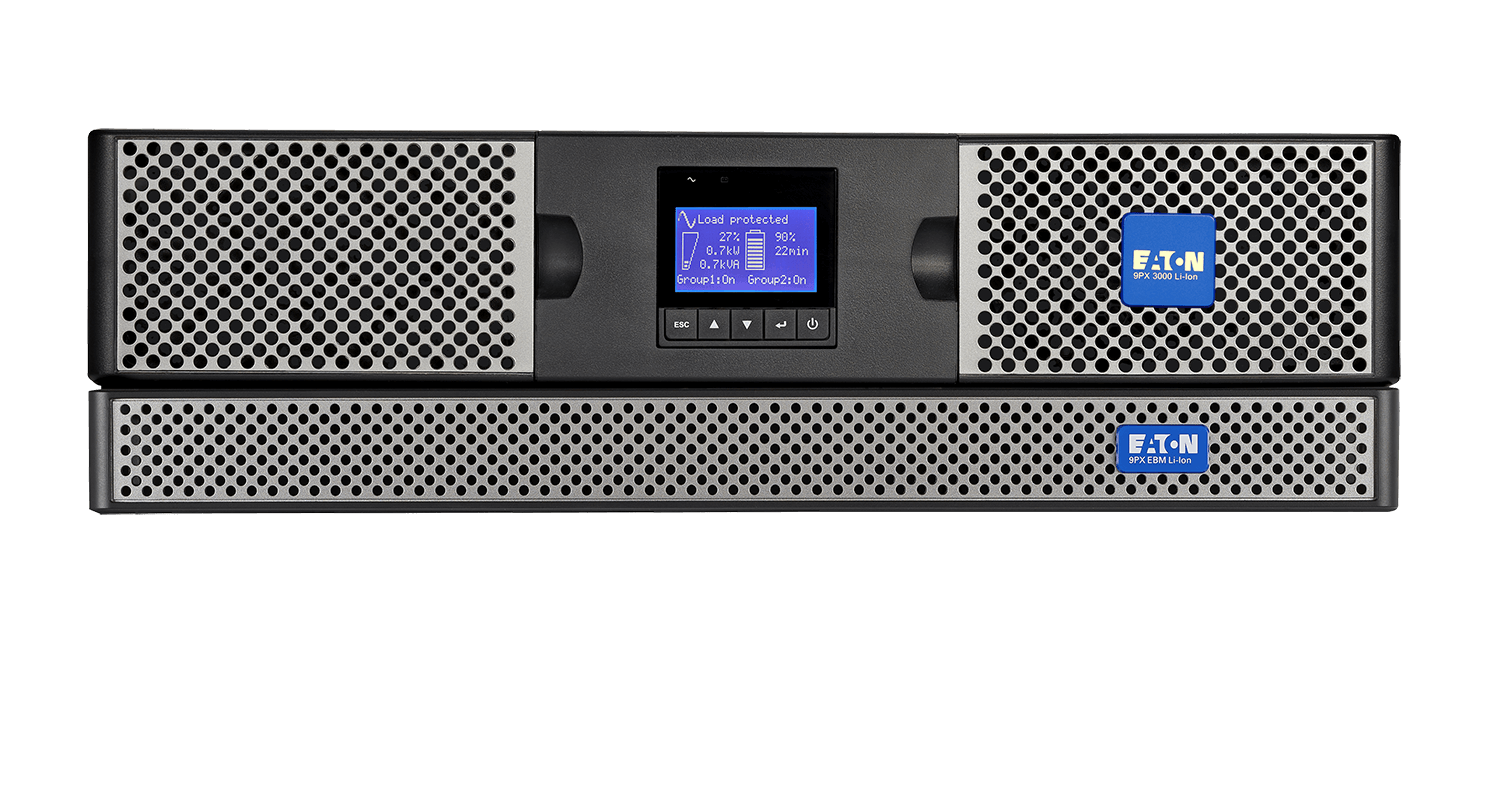
Eaton 9PX Lithium
Technology:
Power rating:
Phase:
Configuration:
Warranty:
The Eaton 9PX Lithium UPS offers an extended battery life of 8-10 years, compared to the typical 3-5 years of VRLA battery UPS systems. Backed by a five-year factory warranty covering electronics, internal batteries, and External Battery Modules, it ensures reliable power protection for mission-critical equipment.
Part of the Eaton 9 series single-phase double-conversion UPS line, the 9PX lithium-ion UPS delivers constant power conditioning for critical applications. Equipped with features like load segments for prioritised shutdowns, remote power on (RPO), remote on/off (ROO), and output relay ports, it offers enhanced control capabilities.
Eaton UPS systems are scalable and configurable to meet diverse power requirements, offering a future-proof investment. As UPS specialists, we provide comprehensive design, installation, and maintenance services to optimise the performance of your new equipment.
- Double Conversion Topology: Constantly monitors power conditions and regulates voltage and frequency for optimal performance.
- Energy Star Qualified: Ensures the highest efficiency to reduce energy and cooling costs.
- Energy Consumption Metering: Allows monitoring of energy consumption down to the managed outlet groups.
- Load Segment Control: Enables prioritised shutdowns of non-essential equipment to maximise critical device battery runtime.
- Internal Bypass: Ensures service continuity in case of an internal fault, with a maintenance bypass available for easy UPS replacement.
- Expandable Runtime: Add up to 4 external hot-swappable battery modules for extended system runtime.
- Lightweight and Space-Saving Design: Reduced UPS and EBM weight and size make it ideal for space-constrained environments.
- Cybersecurity Certified: Eaton Gigabit network management card provides dual cybersecurity certifications (UL 2900-1 & IEC 62443-4-2).
For pricing and further information, please phone Power On Australia on 1300 66 24 35 or complete the enquiry form below.
"*" indicates required fields
- Double Conversion Topology: Constantly monitors power conditions and regulates voltage and frequency for optimal performance.
- Energy Star Qualified: Ensures the highest efficiency to reduce energy and cooling costs.
- Energy Consumption Metering: Allows monitoring of energy consumption down to the managed outlet groups.
- Load Segment Control: Enables prioritised shutdowns of non-essential equipment to maximise critical device battery runtime.
- Internal Bypass: Ensures service continuity in case of an internal fault, with a maintenance bypass available for easy UPS replacement.
- Expandable Runtime: Add up to 4 external hot-swappable battery modules for extended system runtime.
- Lightweight and Space-Saving Design: Reduced UPS and EBM weight and size make it ideal for space-constrained environments.
- Cybersecurity Certified: Eaton Gigabit network management card provides dual cybersecurity certifications (UL 2900-1 & IEC 62443-4-2).
FAQs
Are your UPS' reliable?
UPS’ are very reliable when used in accordance with the manufacturers instructions. Like many electronic devices, they can be easily mistreated.
How do UPS' work?
UPS’ work by preventing interruption of Power to the critical load. This is usually happens by providing a secondary source of energy – like a battery – to run your critical load. There are a handful of different methods for UPS operation, that deliver somewhat different results.
How do UPS' work in a data centre?
Data Centres use a large Centralised UPS array, backed up by generators as well as the grid, to keep power available to the data centre uses for many hours in circumstances when grid power has failed.
What UPS do I need?
The UPS you will need will absolutely be defined by what your load is. A PC will need a different size UPS to a refrigerator, or a variable speed drive. That’s because the loads are very different in nature.
Where is UPS used?
A UPS is expected to be used in any clean, dust Free, temperature and humidity controlled location. Using a UPS outdoors, or in a vehicle or on a ship or an oil rig requires specialist UPS systems.
Which UPS is best for home?
If you are using your UPS in a major city home, and for typical home IT equipment, like PC’s, TV’s and modems, a ‘line interactive’ UPS is all that is generally required. In areas where your power supply is weak or poor quality, or your supported equipment is more critical in nature – like a CPAP machine or humidicrib, it is best to get specialist advice.
Which UPS battery is best?
UPS batteries are divided generally into 2 types. High rate batteries and non high rate batteries. High rate batteries can support a large burst of energy for short periods of time – like 30 minutes, but have a comparatively short service life. Non high rate batteries are designed for long slow discharges, and can often support equipment for many hours, and will last near double the lifespan of high rate batteries. Battery type and sizing is complex, best to seek professional advice here.
Which UPS is best for Computer or Gaming PC?
The best type of UPS is best for every type of application because of the way it’s expected to work. These are double conversion UPS’s, sometimes called true on line UPS’s. They work very differently to more economical UPS’s, are more complex, more reliable, more powerful and significantly more expensive that the low cost UPS’s. If ‘best’ means highest reliability and best quality power output with fewest power breaks to you, get Double Conversion.
Why is UPS used?
A UPS is used solely to prevent or limit interruption of mains power to critical loads. Other add on functions like surge protection, alarms and communications and remote control of servers is not a core UPS function.
If you have a question we haven’t featured in our FAQs, please use the form above and we’ll get back to you as soon as possible. Thank you.

